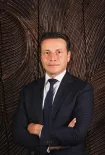The European Securities and Markets Authority has issued a fresh update on October 1 to its Questions and Answers document providing guidance and interpretation of the EU's Alternative Investment Fund Managers Directive as well as the European Commission's level II delegated regulations on implementation of the directive issued in December 2012 and May 2013.
The Q&A document, first issued in February 2014 and since updated nine times, aims to promote common supervisory approaches and practices in the practical application of the AIFMD and its implementing measures through responses to questions posed by the general public and regulators themselves. It complements a Q&A document on the AIFMD published by the European Commission.
The ESMA Q&A covers remuneration, notification of alternative investment funds and their managers, reporting to national regulators, services covered by MiFID, depositaries, calculation of leverage, delegation, calculation of assets under management, additional own funds, and scope of the authorisation requirement.
The latest version contains just a single new question, regarding depositaries. ESMA says that when fund assets held in custody by the fund's depositary are provided to an EU or third-country central securities depositary as defined under Regulation (EU) No 909/2014 (CSDR) to be held in custody in accordance with AIFMD Article 21(8), the CSD must comply with the provisions on delegation set out under the directive's Article 21(11).
The previous update, issued on July 21, covered reporting to national regulators and calculation of the total value of assets under management:
- When a non-EU AIFM reports information to the regulator of an EU member state under Article 42, only funds marketed in that member state need to be taken into account. Where EU members apply ESMA's opinion on collection of additional information under Article 24(5), managers should also report on non-EU master funds, even if not not marketed in the EU, if they have either EU feeder funds or non-EU feeders marketed in the EU under Article 42.
- To convert the total value of assets under management into euros, AIFMs should take the rounded values of the funds in their base currency and divide them by the corresponding value of one euro into the base currency of the funds. For example, if the base currency of a fund reporting for the March 31, 2015 period is the US dollar, using the ECB rate AIFMs should divide the rounded US dollar value of the fund by 1.0759, the spot rate on that date.
- ESMA says AIFMs should report the rounded values in the base currency as well as in euros in questions 33 and 34 of the consolidated reporting template for AIFM-specific information and in question 48 for AIF-specific information. They should also report the value of the exchange rate used for the conversion in question 37 of the template for AIFM-specific information and in question 50 for AIF-specific information.
- Since the procedure for first reporting of funds should be the same as for first reporting of managers, according to ESMA's guidelines on reporting obligations, AIFMs should not report any information on AIFs for the reporting period during which they were created. However, ESMA has clarified that AIFMs should include AIFs created during the reporting period in their total value of assets under management for the period. In this case, the total value of assets for the manager at the reporting date will not match the sum of assets for its funds.
- ESMA says AIFMs should include short non-derivative positions for the calculation of the total value of assets under management, under Article 2(1)(b) of the implementing regulation, which says AIFMs should include assets acquired through leverage.
ESMA's updated Q&A document can be consulted at http://www.esma.europa.eu/system/files/esma-2015-1490_-_qa_aifmd_1_oct_15.pdf, while the European Commission's list of issues and responses is at http://ec.europa.eu/yqol/index.cfm?fuseaction=legislation.show&lid=9.
Olivier Sciales
Chevalier & Sciales
Partner
Route de Thionville 51
2611 Luxembourg
Office: + 352 26 25 90 30
Fax: +352 26 25 83 88
Email: oliviersciales@cs-avocats.lu
website:
www.cs-avocats.lu
Linkedin: http://www.linkedin.com/in/oliviersciales
Twitter: @oliviersciales
The content of this article is intended to provide a general guide to the subject matter. Specialist advice should be sought about your specific circumstances.

